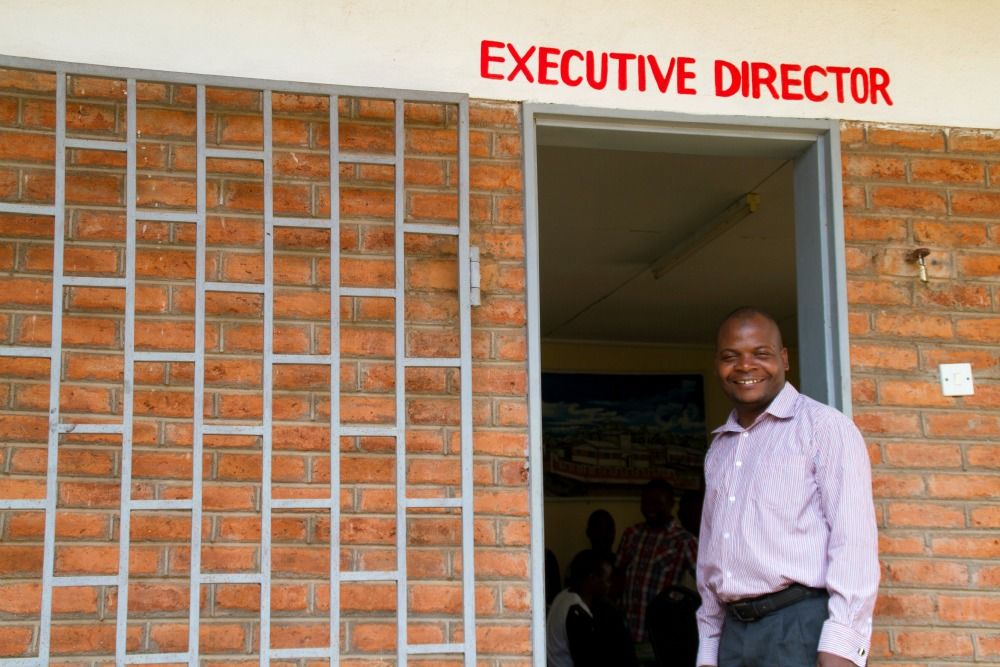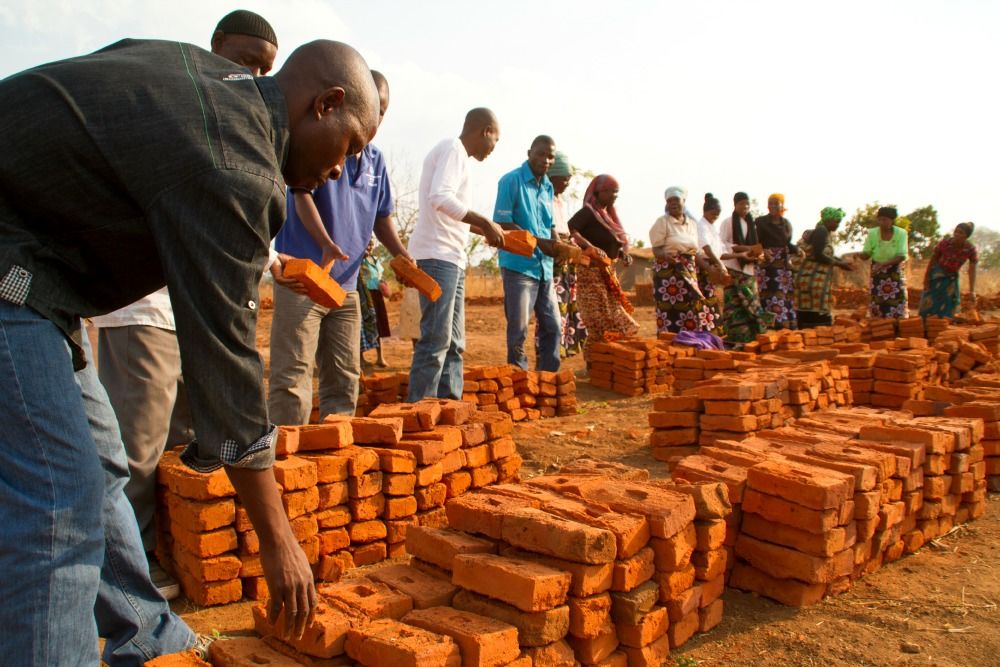On this World AIDS Day we salute all of our grantee partners and their efforts to support young children and families living in communities impacted by HIV and AIDS. In particular, we want to appreciate all of the visionary leaders of community-based organizations that are part of this effort.
On this World AIDS Day we salute all of our grantee partners and their efforts to support young children and families living in communities impacted by HIV and AIDS. In particular, we want to appreciate all of the visionary leaders of community-based organizations that are part of this effort. In late September, I had the opportunity to visit Malawi and to spend several days with the Namwera AIDS Coordinating Committee (NACC), a community-based organization working in the mountainous communities of Namwera, not far from the Mozambique border. The Conrad N. Hilton Foundation’s strategic initiative to improve early childhood development (ECD) outcomes for young children affected by HIV and AIDS, places emphasis on strengthening community-based organizations (CBOs) like NACC to enable them to better deliver early childhood development services to the communities they serve. The Foundation recognizes that CBOs are critical actors, given that they understand local needs and perspectives, and are well placed to foster meaningful community engagement and ownership.
NACC began as a community committee that was concerned about the impacts of HIV and AIDS back in 1996. Nearly 20 years later, it hasn’t strayed from its roots despite its success. From its inception, NACC has worked to integrate HIV and AIDS work with early childhood development—connecting vulnerable young children and families to HIV testing, care and treatment—while at the same time establishing community-based early childhood centers to ensure that young children have a safe, stimulating environment for early learning. Members of the committee also train volunteers to visit vulnerable families at home to provide support to caregivers, including referrals to available services such as HIV and AIDS prevention and treatment. I visited the home of a woman living with HIV who has been supported by NACC and she told me that she was feeling strong and taking her ART medication, while her toddler is HIV free.
Not only does NACC focus on programs and services, it also empowers communities to be more self-reliant and resilient. Saeed Wame, the organization’s Founder and Executive Director, firmly believes that you have to start by listening to the community and their needs. NACC is accountable not only to donors but to the community—projects are developed with community input and they are kept fully informed during the process. Saeed explains, “There is community involvement because the community feels pressured to be engaged and there is community involvement because the community believes they are meeting their own perceived needs. In the latter case, the community will continue working even when the CBO is not there.”

The value these communities place on early learning for young children was very apparent. For example, communities contribute resources in a number of ways—including by providing materials to construct an early childhood development center, by volunteering in the center, and by contributing some of their crops to provide children attending the ECD centers with a noon meal. In my visits with the community leadership—traditional chiefs, village head men and the ECD management committees—they all indicated how proud they were of the center and all the work that is taking place to give their children a strong start. When there are problems, the community comes together to find solutions. Saeed emphasizes that the key to success is both coordination and collaboration. In many cases, community members have begun a project and then approached their Member of Parliament or a wealthy member of the community for additional support. This was very inspiring and a real departure from mainstream development projects which often lack strong community ownership and which are very difficult to sustain once the project funding ceases.

The Conrad N. Hilton Foundation is supporting the work of NACC via a grant to the Firelight Foundation that includes small grants and capacity building of 18 CBOs in Malawi, Tanzania and Zambia to strengthen their efforts to deliver holistic ECD services within their communities. NACC is also providing training and mentoring to five other local CBOs—including an association for people living with HIV and AIDS, and their approach includes learning circles and exchange visits. After visiting NACC and seeing the work it is doing to meet the needs of children and families affected by HIV and AIDS, I am humbled to be working with visionary community leaders such as Saeed Wame.